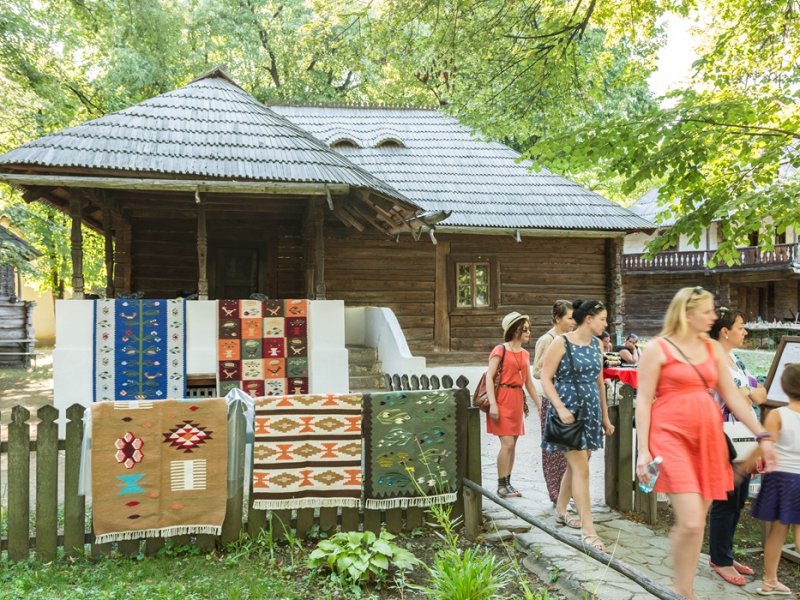The annual fairs organized by the National Museum of the Romanian Peasant (MȚR) form a well-structured cultural calendar dedicated to promoting traditional crafts, contemporary creativity, and authentic, meaningful consumption. Each season offers a new opportunity for artisans, collectors, creators, and the urban public to connect through living heritage. Below is a chronological list of the main fairs, with estimated dates:
- Mărțișor Fair (February 25 – March 1) – creative reinterpretations of the traditional spring talisman, along with hands-on craft workshops.
- Spring Peasant Market (around March 7–9) – folk furniture, traditional costumes, porcelain, numismatics, vintage paintings, and jewelry with a story.
- Palm Sunday Fair (late March – early April) – religious items, hand-painted icons, ceramics, embroidered blouses, candlesticks, and regional needlework.
- Sânziene Fair (around June 24) – ritual plants, solar symbols in embroidery, traditional adornments, and seasonal folk objects.
- St. Elijah’s Fair (July 19–21) – traditional ceramics, honey-based products, wooden crafts, textiles, live craft demonstrations, and local delicacies.
- Autumn Peasant Market (September–October) – artisanal and culinary displays including pickles, jams, honey, regional ceramics, folk clothing, and rustic furniture.
- St. Demetrius Fair (late October) – hand-painted icons on wood and glass, folk religious objects, and textiles with sacred motifs.
- Christmas Fair (early December) – winter decorations, painted eggs, wooden and ceramic crafts, traditional gifts, and festive treats.
These fairs are more than just markets—they offer a coherent cultural experience designed as a form of visual and emotional education, set in an urban space that remains deeply connected to Romanian traditions.
Also recommended 5 Weekend markets in Bucharest to explore like a local
